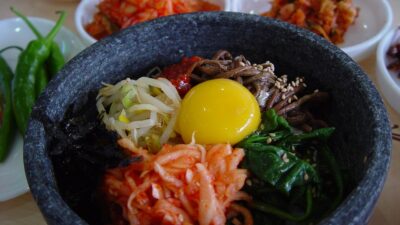In recent years, the culinary landscape has undergone a significant transformation, driven by a newfound appreciation for wholesome, sustainable ingredients. Among these trends, the rise of organic desserts stands out as a delicious testament to the farm-to-fork movement—a concept that emphasizes the importance of local sourcing, seasonal ingredients, and ethical agricultural practices in the food we consume.
The Farm-to-Fork Movement
At its core, the farm-to-fork movement seeks to bridge the gap between consumers and the origins of their food. It champions the idea that the freshest, most flavorful ingredients can be found within the local community. This philosophy extends beyond just main courses and savory dishes; it is now making a significant impact on how we approach desserts.
Emphasizing Quality Over Quantity
As consumers become more health-conscious, they are increasingly turning to organic ingredients for their sweet treats. Organic desserts use ingredients that are grown without harmful pesticides, artificial fertilizers, or genetically modified organisms (GMOs). This shift toward quality over quantity is reflected in a growing preference for desserts made with fewer, more natural ingredients.
Chefs and home bakers alike are experimenting with local produce, whole grains, and natural sweeteners such as honey or maple syrup. Seasonal fruits are being showcased not just as accompaniments but as the stars of the dessert. For instance, a late-summer peach cobbler might feature locally sourced, organic peaches paired with whole grain flour, while winter might inspire a spiced apple galette made from handpicked apples.
Health Consciousness and Ethical Choices
The rise of organic desserts parallels a broader societal shift towards health consciousness. As people become more aware of the ingredients in their food, they are seeking desserts that not only satisfy their sweet tooth but also align with their health goals. Organic desserts tend to be lower in harmful additives and may contain more nutrients because of the quality of the ingredients used.
Furthermore, the ethical dimension of food sourcing cannot be overlooked. With the increasing awareness of the environmental impact of industrial agriculture, many consumers are opting for organic desserts as a way to support sustainable practices. By choosing organic, shoppers are often helping to bolster local economies and reduce their carbon footprint.
The Artistry of Organic Desserts
As the organic dessert trend gains momentum, chefs are becoming more creative in their approach. The constraints of organic ingredients can inspire innovation, leading to unique flavor profiles and eye-catching presentations. Consider the use of alternative flours like almond or coconut for gluten-free options, or the addition of superfoods like chia seeds or matcha for a nutritional boost.
Pastry chefs are also experimenting with different types of textures and forms, crafting everything from vegan cheesecakes to gluten-free cookies that don’t compromise on taste. The result is a diverse array of desserts that cater to various dietary preferences without sacrificing indulgence.
The Rise of Dessert Shop Concepts
The rise of organic desserts has also given birth to specialized dessert shops and cafes that focus exclusively on health-conscious sweets. These establishments often emphasize transparency by providing information about where their ingredients are sourced. Patrons can indulge in a guilt-free experience, knowing their treats are made with love and care.
Additionally, many of these businesses are incorporating community involvement into their models, hosting events or workshops about sustainable cooking and baking. This strengthens the local food network and encourages a deeper connection between consumers, producers, and local businesses.
Conclusion
The rise of organic desserts is more than just a passing trend—it represents a fundamental shift in how we value food. With a focus on quality, health, and sustainability, organic desserts are paving the way for a sweeter future that honors the farm-to-fork philosophy. As we savor these delicious treats, we are not only nourishing our bodies but also supporting a movement that places a premium on ethical and local sourcing practices. The next time you indulge in a slice of organic cake or a scoop of locally churned ice cream, remember that you are part of this delicious revolution.



